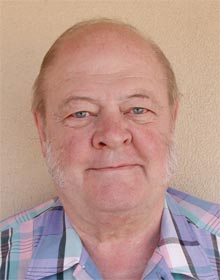Carl Edward Baum: Difference between revisions
N.w.brewer (talk | contribs) No edit summary |
No edit summary |
||
| Line 7: | Line 7: | ||
Dr. Baum is an authority on electromagnetic pulse simulation (EMP) and has designed simulators for testing various electromagnetic systems used by the U.S. Air Force as well as allied and friendly countries. His excellent design of a special class of antennas, used for accurate transient/broadband measurements of electromagnetic fields and related parameters, are now in standard use by the EMP community in both the U.S. and Western Europe. | Dr. Baum is an authority on electromagnetic pulse simulation (EMP) and has designed simulators for testing various electromagnetic systems used by the U.S. Air Force as well as allied and friendly countries. His excellent design of a special class of antennas, used for accurate transient/broadband measurements of electromagnetic fields and related parameters, are now in standard use by the EMP community in both the U.S. and Western Europe. | ||
[[Category:Fields, | [[Category:Fields, waves & electromagnetics|Baum]] [[Category:Antennas|Baum]] [[Category:Electromagnetics|Baum]] | ||
[[Category:Antennas]] | |||
[[Category:Electromagnetics]] | |||
Revision as of 14:41, 10 January 2012
Biography
Dr. Baum is a distinguished research professor in the department of electrical and computer engineering at the University of New Mexico in Albuquerque. He is most famous for developing the Singularity Expansion Method (SEM), which compactly and parametrically represents the late-time electromagnetic scattering and gives an aspect-independent radar signature for target identification. He also introduced the concepts of natural frequencies, natural modes, and coupling coefficients that could be computed from an integral equation to concisely represent experimental data.
Dr. Baum is an authority on electromagnetic pulse simulation (EMP) and has designed simulators for testing various electromagnetic systems used by the U.S. Air Force as well as allied and friendly countries. His excellent design of a special class of antennas, used for accurate transient/broadband measurements of electromagnetic fields and related parameters, are now in standard use by the EMP community in both the U.S. and Western Europe.
